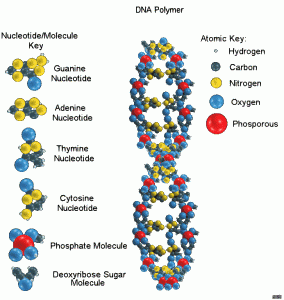Decision-making special issue in Science:
From Mind Hacks: This week’s Science has a special selection of papers on the psychology and neuroscience of decision making. While most of the articles are closed-access, one on how game theory and neuroscience are helping us understand social decision-making is freely available. It is a great introduction to ‘neuroeconomics’, a field that attempts to […]
 From Mind Hacks: This week’s Science has a special selection of papers on the psychology and neuroscience of decision making. While most of the articles are closed-access, one on how game theory and neuroscience are helping us understand social decision-making is freely available.
From Mind Hacks: This week’s Science has a special selection of papers on the psychology and neuroscience of decision making. While most of the articles are closed-access, one on how game theory and neuroscience are helping us understand social decision-making is freely available.
It is a great introduction to ‘neuroeconomics’, a field that attempts to work out how the brain supports cost-benefit type decisions.
This can be directly applied to financial decision-making, but also to other types of situations where weighing possible gains and losses is important, whether the gains and losses are in the form of money, time, social advantage or status – to name just a few.
One of the crucial discoveries of recent years is that people do not act as rational maximisers – making individual decisions on how to get the most benefit out of each choice. In fact, social influences can be huge and often lead people to reject no-risk economic gains when then feel it is socially unjustified.
This had led the field into interesting territory, both informing models of the economy, and illuminating how we make social decisions.
As part of the neuroeconomic approach, researchers have begun to investigate the psychological and neural correlates of social decisions using tasks derived from a branch of experimental economics known as Game Theory. These tasks, though beguilingly simple, require sophisticated reasoning about the motivations of other players. Recent research has combined these paradigms with a variety of neuroscientific methods in an effort to gain a more detailed picture of social decision-making. The benefits of this approach are twofold. First, neuroscience can describe important biological constraints on the processes involved, and indeed, research is revealing that many of the processes underlying complex decision-making may overlap with more fundamental brain mechanisms. Second, actual decision behavior in these tasks often does not conform to the predictions of Game Theory, and therefore, more precise characterizations of behavior will be important in adapting these models to better fit how decisions are actually made.
Link to Science special issue on decision making.
Link to article ‘Social Decision-Making: Insights from Game Theory and Neuroscience’.
Link to previous Mind Hacks post on game theory and (ir)rationality.






